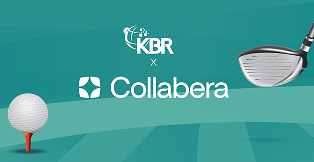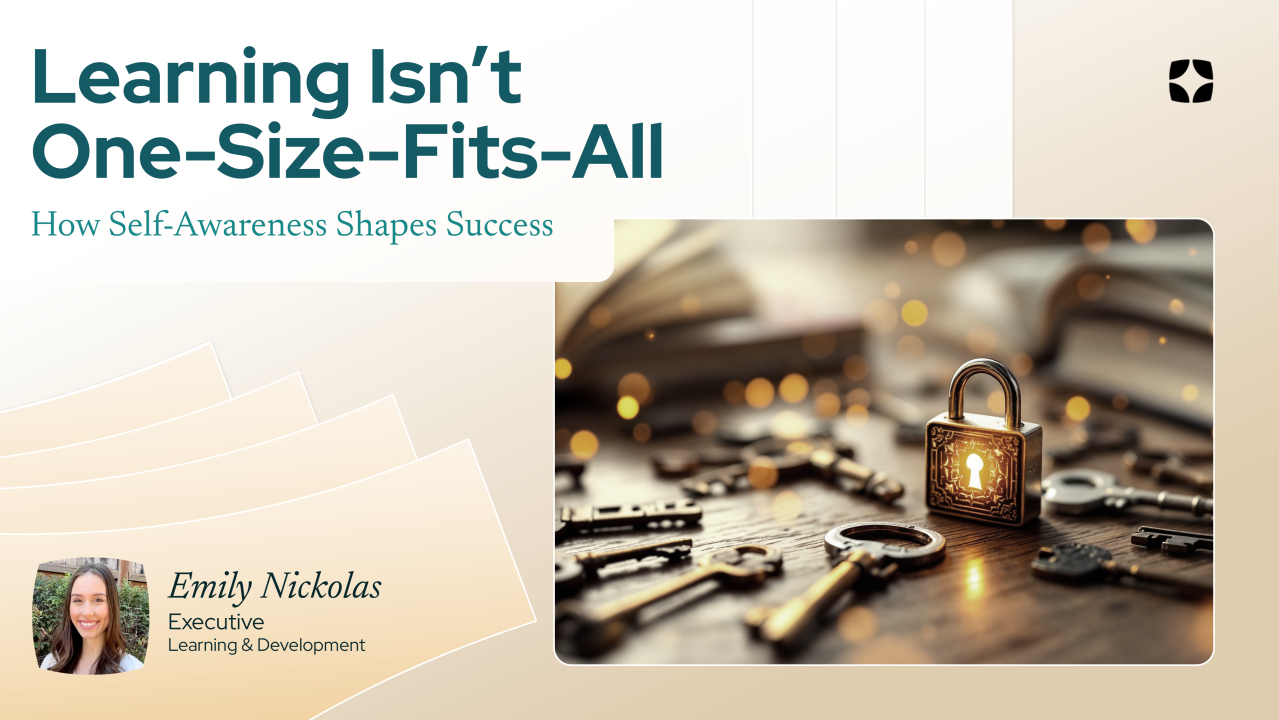The right talent can transform your business—and we make that happen. At Collabera, we go beyond staffing to deliver strategic workforce solutions that drive growth, innovation, and agility. With deep industry expertise, a global talent network, and a people-first approach, we connect you with professionals who don’t just fit the role but elevate your business. Partner with us and build a workforce that powers success.
31
Oct
Learning Isn’t One-Size-Fits-All: How Self-Awareness Shapes Success
When new associates join Collabera, they’re often overwhelmed with what they need to learn and how fast they’re expected to learn it. Some are fresh out of college. Some are stepping into their first corporate role. Regardless of their background, almost all of them ask the same question early on: “How do I get better at this?”. And my answer is always the same: first, figure out how your brain works.
Everyone learns differently, but few people have taken the time to really think about what kind of learner they are. That’s where we start. Are you someone who learns best by listening? Watching? Doing? Most people are a combination of styles, but the sooner you figure out your dominant learning type, the more effectively you can absorb information and the less time you waste trying to fit into someone else’s method.
If you’re an auditory learner, podcasts or walking through a process out loud might be your key to clarity. Visual learners benefit most from diagrams, charts, and videos. Kinesthetic learners need to get their hands on something, literally. Mapping out the recruitment life cycle on a whiteboard or role-playing cold calls might be the most effective path for them, even if it’s uncomfortable at first.
There’s no “better” or “faster” style. The most effective learning method is whatever helps you retain, apply, and evolve your knowledge. But to get there, you have to be willing to test, observe, and adjust. That means paying attention to what sticks, asking for the type of training you need, and resisting the urge to blame the process when something doesn’t click right away.
It also means pushing past the fear of getting it wrong. Especially for perfectionists, hands-on learning can be tough. You don’t want to take the first swing and miss. You don’t want to stumble in front of others. But that fear of imperfection can stall your growth before it ever begins. One of the biggest breakthroughs I’ve seen with associates is when they stop trying to be perfect on the first try and instead, focus on the learning process!
The truth is that our brains don’t grow through constant input; they need reflection, rest, and repetition. Yet, in today’s world, most of us are used to filling every quiet moment with noise. We scroll during commercial breaks, play music while we shower, and rely on content to fill every quiet moment. However, the best ideas often emerge when you turn the noise off and let your thoughts breathe.
If you’re not sure how to begin, start by sitting still. Practice a few minutes of silence. Ask ChatGPT to explain something you don’t understand through analogies you relate to. Notice how you react when you mess up. Do you freeze? Or do you lean in and give it another shot?
Self-learning is a mindset. It’s not about knowing everything; it’s about being curious enough to figure it out.
And that’s what success at Collabera is really built on. Not how quickly you master the recruitment life cycle or memorize a cold call pitch, but how deeply you understand yourself. Because once you do, you won’t just learn faster. You’ll grow smarter.
About the Author
Emily Nickolas believes that learning starts with self-awareness. As a Learning and Development Executive at Collabera, she works closely with new associates to help them grow into confident, capable professionals. With a background in marketing and psychology from Santa Clara University, Emily designs training that meets people where they are, bridging business goals with the way real humans think and learn. Every day, she aims to build towards the moments when something clicks, and a new hire realizes, “I can do this.”


